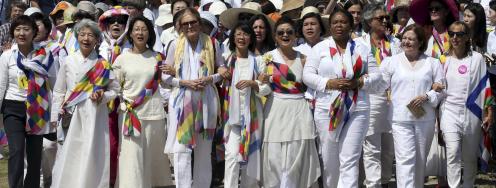What We Know and What We Don't Know About North Korea
In a recent article in Foreign Policy Ploughshare's Grantees Robert Carlin and Joel Wit, remind us that if we know anything about North Korea it's that we don't know much about North Korea.
In the article, Carlin and Wit, both former U.S. policymakers and well respected voices on issues related to the Korean Peninsula, lament the wave of analysis and assumptions that precede the much anticipated conference of the ruling Workers' Party in North Korea. The Worker's Party conference was called in response to Kim Jong Il's increasing frailty in order to pick new leadership for the Party.
The 'analytical missteps" succinctly addressed by the authors include claims regarding the succession of power, the weakness of the North Korean State and the significance of diplomatic interaction between Pyongyang and former U.S. President Jimmy Carter and Pyongyang and Beijing.
In Carlin and Wit's words, "Yogi Berra's famous observation -- 'it's déjà vu all over again' -- could well describe recent analysis of the succession. " The authors remind readers that "there was a lot of goofy reporting about Kim Jong Il during the last power transition in the 1980s and 90s, following the death of his father, Kim Il Sung" and it seems the status quo has not changed. Carlin and Wit stress that the narrative surrounding North Korea's imminent collapse has been supported by the South Korean media for years and as such is questionable.
Lastly, as the article describes, too much significance should not be placed on the recent diplomatic rumblings "North Korean and Chinese leaders have a long, long history of visiting each other. These visits are important, but there is a tendency to overanalyze the significance of any single trip."
Carlin and Wit close their analysis of the public commentary on events – past, present and future – on the Korean Peninsula with a wisdom gleaned from “15 years in thinking about how to deal with Pyongyang”, asserting that in the world of foreign policy analysts knowing how to ask the right questions is paramount and "unfortunately, that's a lesson that has to be learned over and over again in regards to the North."



